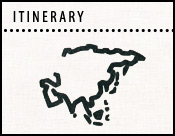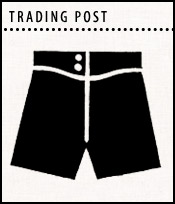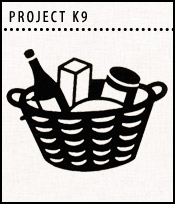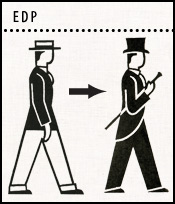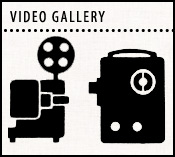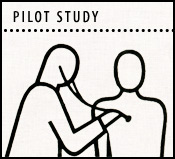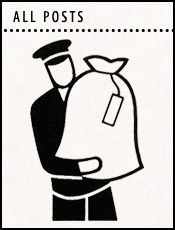Leaving Tianjin, city of rust, was like a long goodbye kiss with China. And china had abstaining from brushing and been smoking packs of cigarettes in preparation.

We had no “clean break” as one might in a plane launching from an airstrip, rather two hours stalled ferry, as our ship was continually delayed due to smog cover. We passed the time gawking at the Port of Tianjin. The acrid fog refused to thin, and when we finally departed, it was half an hour of snaking through the smokey labyrinth of docking canals, as our pilot ship escorted our own “Tian Ren” to the mouth of the Yellow Sea.

It seemed the port was home to a single ferry, ours, and was a place clearly developed for transporting cargo. This cargo was being loaded onto all manner of ships, painted in primary colors that oxidized through the fog into twisted pastels. Cranes poised idle, weather on the dock or mounted to the boats themselves. Names of ports beckoned from the ships’ helm, and mounds of red dust awaited loading adjacent to nondescript corrugated metal containers.
 These are the kind of sights that really get me going. Countless blogs cater those hounding over the latest consumer electronics. Most tech guys like watches, mobile phones, mp3 players, and little gadgets. I like the gigantic steel things that enable global trade.
These are the kind of sights that really get me going. Countless blogs cater those hounding over the latest consumer electronics. Most tech guys like watches, mobile phones, mp3 players, and little gadgets. I like the gigantic steel things that enable global trade.

These gigantic unglamorous vessels oddly poetic names like “CNA CCM AFRICA” “Overseas Soverign,” and “Shining star” are owned by greek tycoons vacationing thousands of miles away in St. Moritz, shouting orders at teams of bankers who scramble in New York to value these rusting money machines.You see, the cargo ships are not trivial.Non-trivial to finance. New builds are expensive. The bigger the boat, the bigger the earning potential, the bigger the bet. You must spend a staggering amount of money and engineer a stream of payoffs from operating profits during the lifetime of the ship. If everyone wants ships, everyone will be building them and materials, labor, and dock space will be costly. By the time you’ve finished your ship, Hanjin, Samsung Heavy, Hyundai Heavy have just rolled out new builds too. Atop that, the (roughly) six year American economic cycle has hit an inflection point and supply outpaces demand for your services, dropping the price. Oops. At least now you have a gigantic boat with a nice shiny paint job.

Non-trivial to build. These gigantic things take time, space, a surprising degree of engineering expertise. Korea has a lockdown on this market, producing many ships in Incheon and Busan. Tianjin, too is trying to match the quality and undercut the price, but the Korean Chaebols have experience where the Chinese have a lot of mistakes yet to make. Additionally, these Chaebols are locked into stayed relationships with banks, governments, and may be cushioned by the other constituent firms that make up their holding conglomerate.

Non-trivial to own or operate. How long will the given economic boom last and will it overlap with the life cycle of your ship? Ever dealt with Philippine pirates armed with Russian made machine guns in the Sulu seas? They’re a real pain for your insurance premium (sea piracy and shipping accidents were the reasons Lloyds of London came about). It’s also a pain when Chinese people smugglers, known as “snakeheads,” were paid $60,000 per head to transport illegal immigrants in a shipping container, and you’ve been summoned to court to explain why they were discovered getting off your boat in Oakland, CA, rather than while getting on in Xiamen, Fujian. If the stress is too much for you, you can sell the freighter on the secondary market, like the Hua Run below: Manufactured in Vladivostok by the Russians then purchased and painted over by the Cambodians, ushered to a new home in Phnom Penh for a new life of dry goods transport.

Non-trivial to liquidate. What if the supertanker is leaking crude across the Arctic ? When repair costs exceed the expected future profitability of a vessel, its time for the graveyard. These graveyards are located in Gujarat, India, and Chittagong, Bangladesh. Why? Miles of shallow water near the mainland of these South Asian countries provide a place for the ships to sit lopsided in the sand while skinny, muscular, men are paid USD $1 per day to extract all the valuable scrap metal and disassemble the rusting beast. In industry jargon, this is referred to as “Shipbreaking.”

Assuming you’re not one of these misfortunate shipbreakers, and rather you’re a more fortunate shipbuilder its possible to get the timing right. You can borrow when money’s cheap, build where labor’s both cheap and skilled, and by the time you smash a bottle of champagne on the helm, the ever cycling economy is banging on your door to shuttle iron ore from Perth to Shanghai. That’s at least what Baosteel or Rio Tinto wants. Or it could be GE sending washing machines from Shenzhen, China to the Bahamas, where products sit in untaxed warehousing zones before going to market. A Nigerian oil magnate may send thousands of barrels of black gold from Lagos to Hong Kong. Or it could be shoes, motorcycles, steel pipe fittings, soccer jerseys, and diesel generators from Hong Kong to Lagos by Guinean traders in Guangzhou. There are ships for dry goods, ships to hold containers, and tankers to hold oil. There are even ships specially fitted to accommodate gigantic chemical tanks. Where do you think American food processing facilities off the New Jersey turnpike get their raw materials?

Shipping connects some of the worlds poorest with the worlds mass market middle class, and is overseen and orchestrated by some of the world’s richest. Catching a glimpse behind the scenes of the international logistics market on the Tianjin to Incheon ferry was stimulating and eye opening, driving my curiosity to new levels. As AsiaWheeling’s resident adventure capitalist, I will research further and determine what kind of inefficiencies or injustices exist in this market. Ones that we may address and continue to investigate on AsiaWheeling 2.0.

Back to our storyAs the Tian Ren neared the sunny Korean peninsula, shore birds began to ride the airstream created by the ferry. schoolchildren and ship engineers alike held out snacks which the birds snatched mid-flight with their beaks.



As the birds circled, darted, and arced, an engineering feat riving the natural one of the birds progressed around us.

A bridge connecting the island two bodies of land across many miles of water seemed to erect itself, as large machines filled pylons with cement mix and crane barges lifted road crew trucks up onto the causeway.

Korea was flexing its muscles. Samsung had branded this bridge, and the work itself has changed the way I consider civil engineering and its disciples.

The people on the boat began to buzz with the energy that accompanies a return trip home, and the clean sea breeze of Incheon welcomed us in a way that no burgeoning city in China could. Seoul lay before us, and with it, wheeling, drinkable tap water, post-modern metropolitan nightlife, and a new level of gonzo attitude.

Armed with a makeshift Korean phrase sheet, we dismounted the ship onto a packed bus which spilled into the customs hall.








































